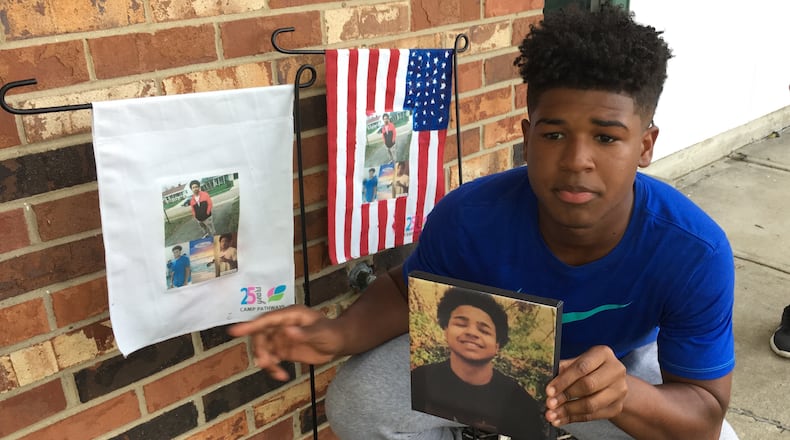The mother of Antoine Jones of Huber Heights says Ohio’s Crime Victims Compensation Program rules don’t take into account that the person who dies isn’t the only victim of a lethal crime.
Jones, 16, was shot dead in a shootout that stemmed from an apparent robbery last year. The bodies of Jones and Fausto Sosa, 20, of Trotwood were found in Jones’ car, along with a gun and more than a pound of marijuana in the trunk.
Victims compensation was denied to Jones’ family because he appeared to be involved in selling drugs when he died, according to the records.
RELATED: Alleged rape victim denied aid because of drug use
Carolyn Williams, his mother, said people in her situation must deal with their grief, often miss work and have to pay thousands of dollars to bury their loved ones.
“There’s nothing available for people who fall into this awful category,” she said.
“I wasn’t aware of my son’s activities until he died,” Williams said. “It’s just another slap in the face from the state of Ohio and their lack of compassion for victims of crime regardless of how a crime happened. We are the victims. My son was a victim who died for a senseless reason. He wasn’t doing the best thing at the time that it happened, but it definitely wasn’t worth someone taking his life.”
FULL REPORT: Claims spike, but fewer victims get compensation
Matthew Kanai, chief of the AG’s crime victims service division, said judicial precedent typically guides the state in determining whether to disqualify someone.
“The courts have found being involved in a drug deal is an inherently dangerous activity,” he said.
MORE FROM THIS SERIES:
About the Author

